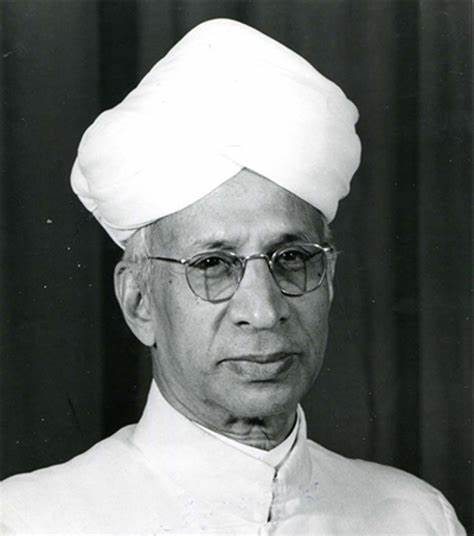Sarvepalli Radhakrishnan - The Philosopher President of India
Sarvepalli Radhakrishnan was a renowned philosopher, teacher, and statesman who left a lasting impact on India's intellectual and cultural development. Read on to discover his remarkable contributions to Indian education, culture, and democracy, and how his legacy continues to inspire generations of Indians.
Introduction:
Sarvepalli Radhakrishnan was a philosopher, teacher, and statesman who served as the second President of India from 1962 to 1967. He was a highly respected and revered leader who played a pivotal role in shaping India's political and social structure. In this article, we will take an in-depth look at Radhakrishnan's life, accomplishments, family history, and more.
Early Life and Education:
Radhakrishnan was born on September 5, 1888, in a small village near Thiruttani in Tamil Nadu. He was the second son of a Telugu-speaking family of Brahmins. His father was a subordinate revenue official, and the family lived in relative poverty. Radhakrishnan was an exceptional student who excelled in both academics and sports. He completed his Bachelor's degree from Madras Christian College and went on to study philosophy at the University of Madras.
Philosophical Contributions:
Radhakrishnan's philosophical contributions were significant and far-reaching. He was an expert in both Indian and Western philosophy and was instrumental in bringing Eastern philosophy to the attention of the Western world. He wrote numerous books and articles on philosophy, including "Indian Philosophy," "The Principal Upanishads," and "Recovery of Faith."
In 1931, Radhakrishnan was appointed as the Vice-Chancellor of the University of Calcutta, where he played a significant role in shaping the university's academic programs. He was also a member of the British Parliament's House of Lords from 1935 to 1952, where he represented India's interests and fought for the country's independence.
Political Career:
Radhakrishnan's political career began in 1946 when he was appointed as India's ambassador to the Soviet Union. He played a critical role in strengthening India's relationship with the Soviet Union and other Eastern Bloc countries. In 1952, he was elected as the Vice-President of India, and in 1962, he became India's second President.
As President, Radhakrishnan worked tirelessly to uphold the values of the Indian Constitution and promote social justice and equality. He was a vocal advocate for education and believed that it was the key to India's progress. He was also a strong supporter of India's cultural heritage and worked to promote the country's rich cultural traditions.
Accomplishments:
Radhakrishnan's presidency was marked by numerous accomplishments. He was instrumental in establishing the National Science Academy, the Indian Council of Cultural Relations, and the National Library of India. He also worked to strengthen India's relationship with other countries and promote peace and cooperation among nations.
Radhakrishnan was also a renowned teacher and was deeply committed to education. He believed that education was the key to unlocking the potential of every individual and was instrumental in shaping India's education policy. He was a strong advocate for the modernization of Indian education and worked to promote scientific and technological education.
Legacy:
Radhakrishnan's legacy continues to inspire generations of Indians. He was a remarkable leader who dedicated his life to the service of the people of India. His contributions to Indian philosophy, education, and politics are unparalleled, and his legacy continues to guide and inspire the country. His birthday, September 5th, is celebrated as Teacher's Day in India, and his life and work remain a shining example of the highest ideals of public service, intellectual rigour, and cultural heritage.
In conclusion, Sarvepalli Radhakrishnan was an eminent philosopher, teacher, and statesman who contributed significantly to India's intellectual and cultural development. His vision and commitment to education, social justice, and national unity continue to inspire and guide generations of Indians.
As the first Vice President and second President of India, Radhakrishnan left a lasting impact on the country's political and social landscape. He played a crucial role in building India's modern education system, promoting Indian culture and philosophy around the world, and upholding the values of democracy, freedom, and social equality.
Radhakrishnan's legacy remains a shining example of the highest ideals of public service and intellectual pursuit. His life and work serve as a reminder that India's strength lies in its diversity, its intellectual heritage, and its unwavering commitment to the pursuit of truth, justice, and peace.
As we celebrate his life and achievements, let us remember his message of universal love, compassion, and human brotherhood. Let us strive to build a better world, where knowledge, wisdom, and human values are celebrated and cherished, and where every individual is respected, valued, and empowered to reach their full potential.

Comments
Post a Comment